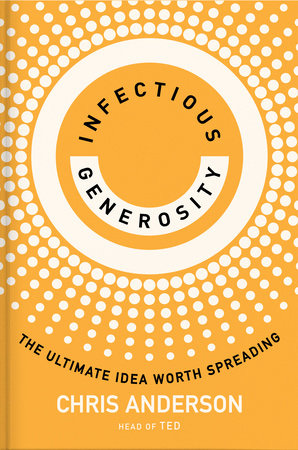The power of giving: how infectious generosity can transform society
TED's Chris Anderson shares his vision for creating a ripple effect of kindness to solve global challenges
Infectious Generosity: The Ultimate Idea Worth Spreading
By Chris Anderson
Grade: 92
With Infectious Generosity, Chris Anderson, famous for his role as the head of TED, shares a radical idea—that we should all promote giving without expecting anything in return. This philosophy encourages us to share our resources, time, and knowledge freely, believing that our acts of kindness will inspire others to do the same, creating a ripple effect of generosity.
In fact, he argues that infectious generosity is essential for addressing many of our most vexing challenges, including social inequality and climate change. By fostering a culture of giving, he writes, we can create a more compassionate, equitable, and sustainable society. In doing so, we’ll strengthen communities, promote economic growth, and inspire innovation along with it.
What piqued my interest
A key argument Anderson makes is that helping others, especially those we don't know, creates a ripple effect. He explains that acts of generosity are not just about benefiting individuals but also about fostering a broader culture of kindness and empathy. By helping strangers, he writes, we inspire them to pay it forward, which creates a virtuous cycle.
Making the case for infectious generosity
The author provides several examples of how infectious generosity is making a difference. One particularly striking example is the story of Aaron Swartz, the late internet pioneer and technology activist who advocated for open access to information. Swartz's unwavering commitment to sharing knowledge inspired countless others to fight for a more open and equitable internet.
Another poignant example mentioned in Infectious Generosity is the Free Rice project, which donates rice to people in need for every correct answer given to a trivia question on the website. By making learning both fun and rewarding, Anderson writes, Free Rice has motivated millions of people to donate rice while expanding their knowledge of the world around them.
Why you should read the book
Infectious Generosity reminded me of another thought-provoking book, Poor Economics: A Radical Rethinking of the Way to Fight Global Poverty, by Esther Duflo and Abhijit V. Banerjee, which made me aware of the real causes of poverty and the often flawed ways leaders seek to remedy it. But while Poor Economics grabbed my attention by the way it reframed poverty and its causes, Infectious Generosity pulled me in by expressing a philosophy that’s simple and timely, especially now, when we should all be rethinking our relationships with one another and the world around us.




